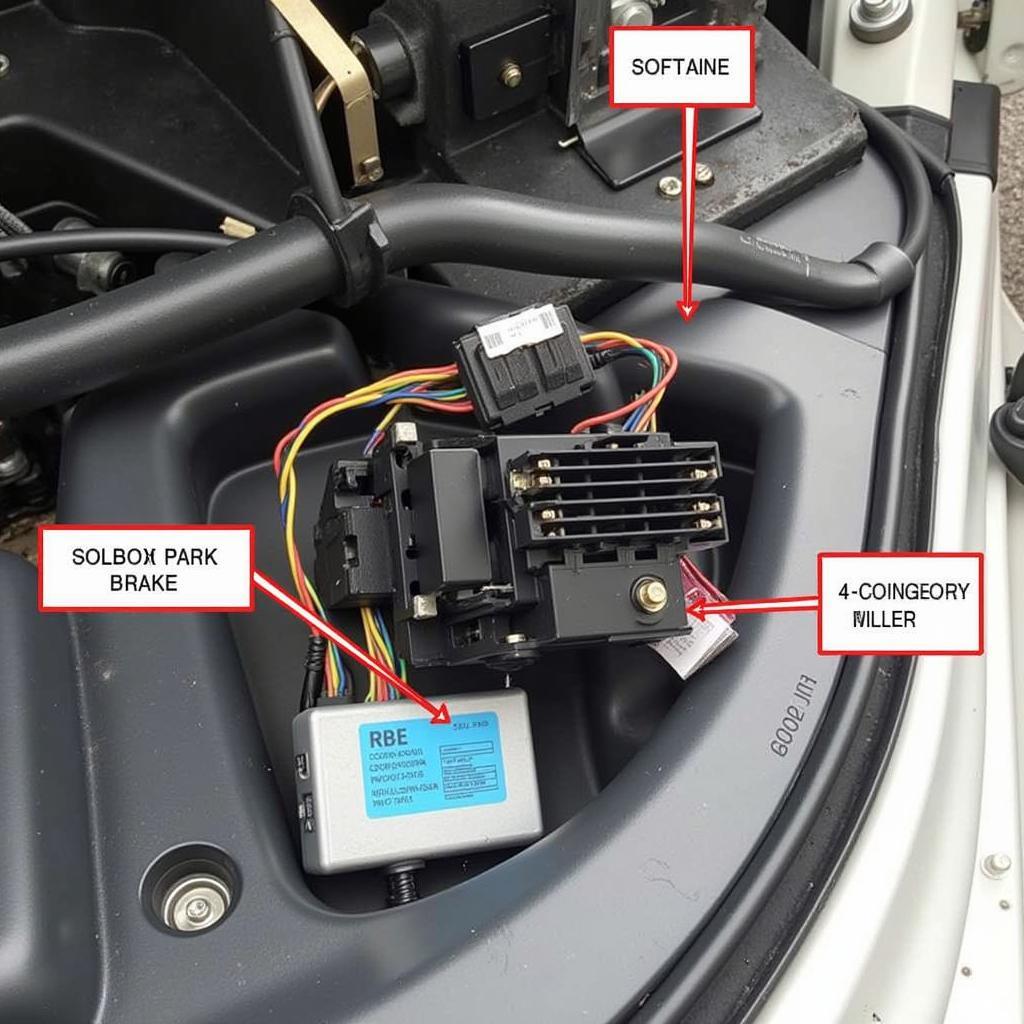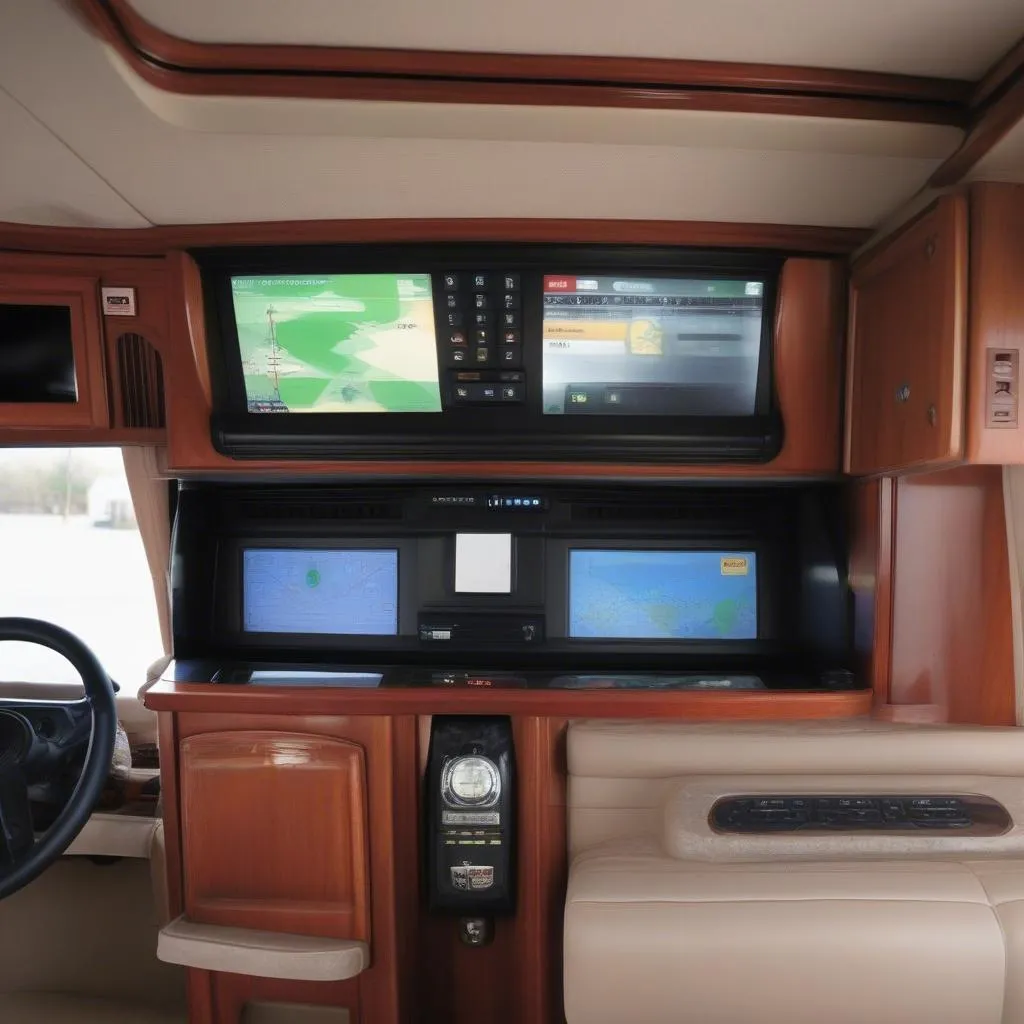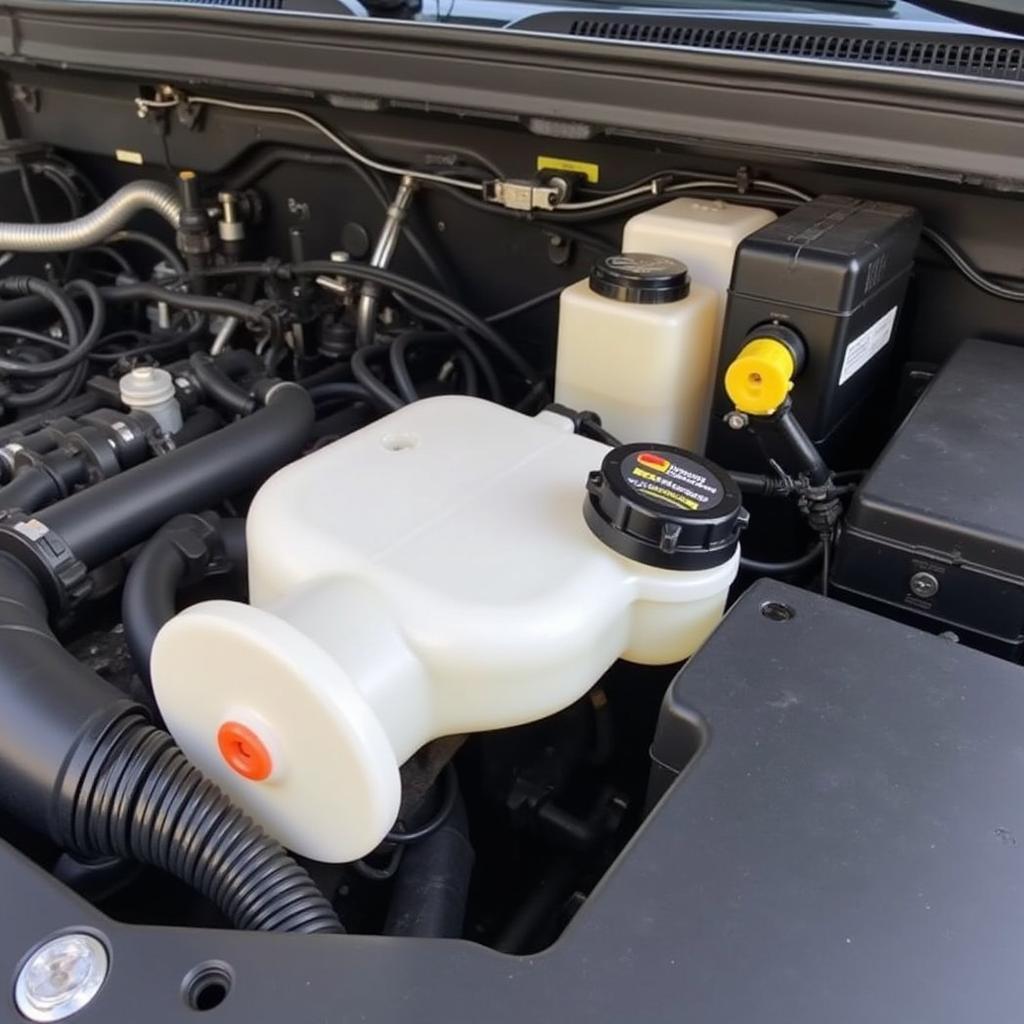Seeing an electronic park brake warning light illuminated on your dashboard can be a concerning experience. This light often resembles a red exclamation mark within a circle or parentheses, sometimes accompanied by the word “BRAKE.” This warning indicates that there is a fault within your electronic parking brake system, requiring your immediate attention.
Understanding Your Electronic Parking Brake System
Unlike traditional handbrakes, electronic parking brakes, also known as e-brakes, are electronically controlled. When engaged, they use a motor to apply braking force to the rear wheels, securing the vehicle in place. This system relies on various components, including:
- Electronic Parking Brake Control Module: This acts as the brain of the system, receiving signals from sensors and controlling the parking brake motor.
- Wheel Speed Sensors: These sensors monitor the speed of your wheels and relay that information to the control module.
- Brake Caliper Actuator: This motor-driven component directly applies and releases the braking force on the rear wheels.
- Brake Pedal Position Sensor: This sensor detects whether the brake pedal is pressed, a crucial input for the control module.
Common Causes of an Electronic Park Brake Warning Light
A illuminated electronic park brake warning light typically indicates one or more of the following issues:
- Worn Brake Pads: Just like with traditional brakes, worn brake pads can trigger the warning light.
- Faulty Brake Caliper Actuator: If the actuator motor fails or encounters mechanical issues, it can prevent proper engagement or disengagement of the parking brake.
- Low Brake Fluid: Insufficient brake fluid level can significantly impact braking performance, including the electronic parking brake.
- Sensor Malfunction: A faulty wheel speed sensor or brake pedal position sensor can send incorrect signals to the control module, leading to system errors.
- Electrical Issues: Wiring problems, loose connections, or a malfunctioning control module can disrupt the system’s operation.
Troubleshooting the Electronic Park Brake Warning Light
Important: While some troubleshooting steps can be done yourself, it’s crucial to remember that brake systems are safety-critical. If unsure, seek help from a qualified mechanic or our remote diagnostics service.
- Check Your Parking Brake Lever/Button: Ensure the parking brake is fully released. Sometimes, an accidental bump can partially engage the brake.
- Inspect Brake Fluid Level: Locate the brake fluid reservoir under the hood and check if the fluid level is within the minimum and maximum markers. Top up with the correct brake fluid type if necessary.
- Check for Visible Damage: Inspect the parking brake lever/button, wiring, and connections for any signs of damage, wear, or loose connections.
- Consult Your Owner’s Manual: Your vehicle’s manual will have specific instructions and warnings related to your electronic parking brake system.
Remote Diagnostics and Software Solutions
If basic troubleshooting doesn’t resolve the issue, our remote diagnostics service can help pinpoint the exact problem. We can analyze your vehicle’s data, diagnose the root cause of the warning light, and even provide software solutions in some cases:
- Software Updates: Manufacturers occasionally release software updates for electronic modules, including the parking brake control module. These updates can resolve bugs or improve system performance.
- Calibration Procedures: Sometimes, a simple calibration of the parking brake system, which can be done remotely, is all that’s needed to clear the warning light.
 Electronic Park Brake Module
Electronic Park Brake Module
When to Seek Professional Help
While minor issues might be resolved with basic troubleshooting, some situations require professional attention:
- Persistent Warning Light: If the warning light stays on even after trying basic fixes, further diagnosis is necessary.
- Unusual Noises: Grinding, clicking, or whining noises during parking brake operation indicate potential mechanical problems.
- Difficulty Engaging or Disengaging: If the parking brake feels stuck, doesn’t engage fully, or doesn’t release smoothly, seek immediate professional help.
 Mechanic Inspecting Brake Caliper Actuator
Mechanic Inspecting Brake Caliper Actuator
Expert Insight
“Electronic parking brake systems are becoming increasingly sophisticated,” says John Miller, a certified automotive electrician with over 20 years of experience. “While they offer convenience and safety features, they also require specialized knowledge and tools for proper diagnosis and repair. Don’t hesitate to seek professional help if you encounter any issues.”
Preventing Future Problems
Regular vehicle maintenance can help prevent future electronic parking brake issues:
- Routine Brake Inspections: Have your brakes inspected by a qualified mechanic at least once a year or as recommended in your owner’s manual.
- Timely Brake Pad Replacements: Don’t wait for the brake pads to wear down completely. Replace them as soon as they reach the minimum thickness specified by the manufacturer.
- Address Warning Lights Promptly: Never ignore dashboard warning lights, especially those related to your brakes.
 Checking Brake Fluid Level
Checking Brake Fluid Level
Conclusion
Understanding the potential causes of an electronic park brake warning light and knowing how to troubleshoot simple issues can save you time and money. However, remember that your brake system is crucial for safety. When in doubt, always err on the side of caution and seek professional assistance. Our team of experts and our remote diagnostics service are always here to help you get back on the road safely.
FAQs
1. Can I drive with the electronic parking brake warning light on?
It’s strongly advised against driving with any brake warning light illuminated. Doing so could lead to further damage or even an accident.
2. How much does it cost to fix an electronic parking brake?
Repair costs vary greatly depending on the issue’s root cause. A simple sensor replacement might cost a few hundred dollars, while a faulty actuator could cost significantly more.
3. How often should I service my electronic parking brake?
Follow your owner’s manual for recommended service intervals. Generally, having your brakes inspected annually is good practice.
4. Can I manually release my electronic parking brake in an emergency?
Most vehicles have an emergency release procedure outlined in the owner’s manual. However, this is typically only for use in emergencies.
5. How long do electronic parking brakes last?
With proper maintenance, an electronic parking brake system can last the lifetime of the vehicle. However, individual components like the actuator or sensors may need replacement over time.


